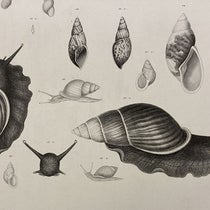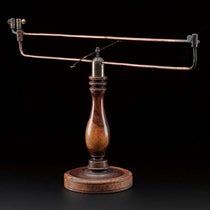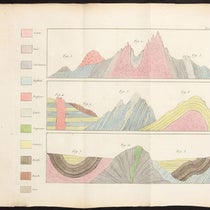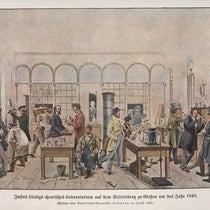Scientist of the Day - John F. Kennedy
John F. Kennedy, thirty-fifth President of the United States, was born May 29, 1917. Kennedy was largely responsible for entering the United States into the race to the Moon. Before his election in 1960, and for the first three months of his presidency, Kennedy was not at all in favor of spending money on space exploration. But when Yuri Gagarin rocketed into orbit on Apr. 12, 1961, Kennedy realized that it was vitally necessary for the United States to respond to the successful Soviet launches. He consulted his advisers and NASA, and learned that the Soviets were almost certainly going to be the first to orbit two- and three-men crews, and to walk in space, and probably were going to be the first to orbit the Moon, but by the time it came to landing humans on the Moon, the United States should have inched ahead of the Soviets in rocket technology and all of the other necessary elements of a lunar mission, if we committed American funds and energy to the project.
So on May 25, 1961, President Kennedy stood before a joint session of Congress and uttered these famous words: "I believe that this nation should commit itself to achieving the goal, before this decade is out, of landing a man on the moon and returning him safely to earth". The most impressive part of this utterance was not the goal but the time frame – “before this decade is out" – which would give Kennedy's words more and more urgency as the years ticked by.
Sixteen months later, Kennedy gave his second "going to the moon" speech. Speaking at Rice University on Sep 12, 1962, Kennedy defended the decision to go into space (first image). He was at Rice because Rice is in Houston, Texas, new home of NASA’s Manned Spacecraft Center, which would be the control center for the Apollo missions. About 5 minutes into his speech, Kennedy delivered these lines: "We choose to go to the moon. We choose to go to the moon in this decade and do the other things, not because they are easy, but because they are hard, because that goal will serve to organize and measure the best of our energies and skills, because that challenge is one that we are willing to accept, one we are unwilling to postpone, and one which we intend to win." Here is a video clip of that part of Kennedy’s 1962 address. It is nice to see a president who could deliver a speech and make you believe that he actually wrote it (which he probably did not), and meant it (which he certainly did). If you have been unimpressed by presidential speech-writing for the last several decades, and want to see how they used to do it; here is the text of the entire Kennedy speech – it is well worth reading.
This year we celebrate the 50th anniversary of the success of Apollo 11. The first half of the Kennedy challenge was officially met on July 20, 1969, when the Eagle landed on the lunar surface (second image), and the second half on July 24, 1969, when Neil Armstrong, Buzz Aldrin, and Michael Collins emerged from their recovery helicopter onto the deck of the USS Hornet (third image). It is too bad that Kennedy was unable to witness the fulfillment of his commitment, part of the most successful space program in history.
This spring and summer, at the Library, we have installed an exhibition, To the Moon: The Science of Apollo, which you should certainly experience if you live in the area. The exhibit was curated by Eric Ward and designed by Melissa Dehner, and it will be on display until Aug. 30, 2019.
Dr. William B. Ashworth, Jr., Consultant for the History of Science, Linda Hall Library and Associate Professor, Department of History, University of Missouri-Kansas City. Comments or corrections are welcome; please direct to ashworthw@umkc.edu.

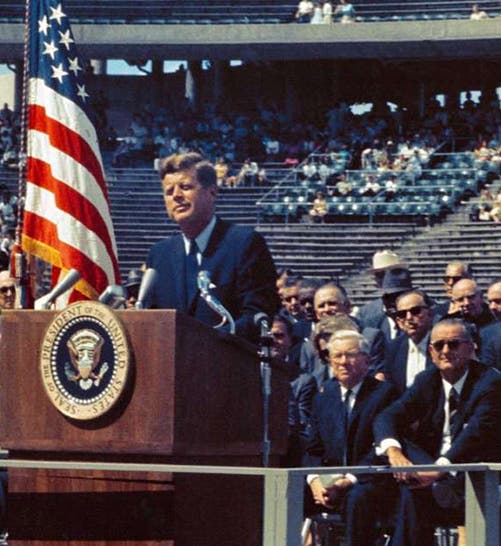
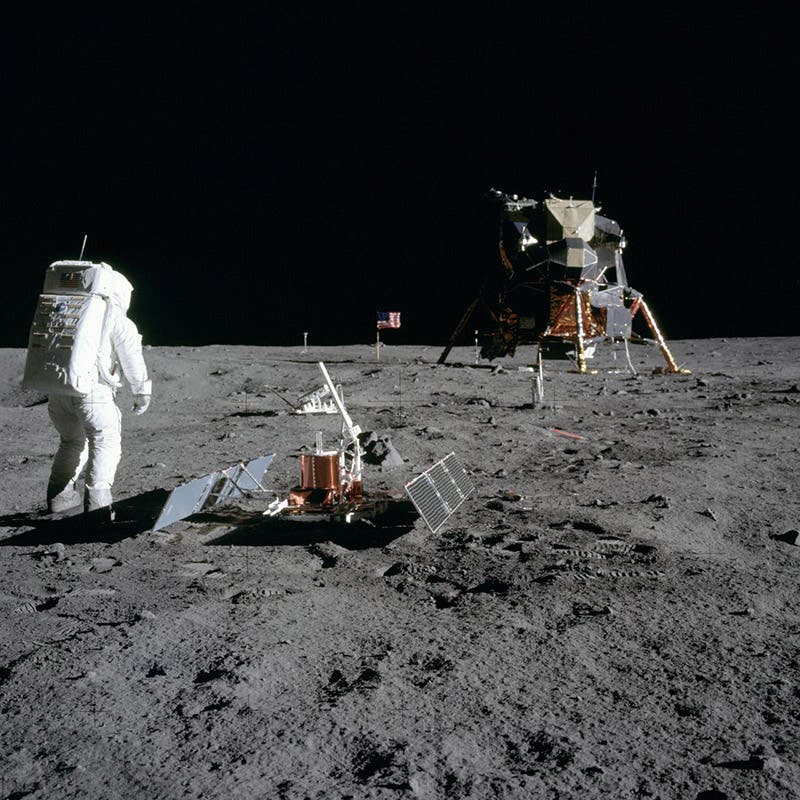
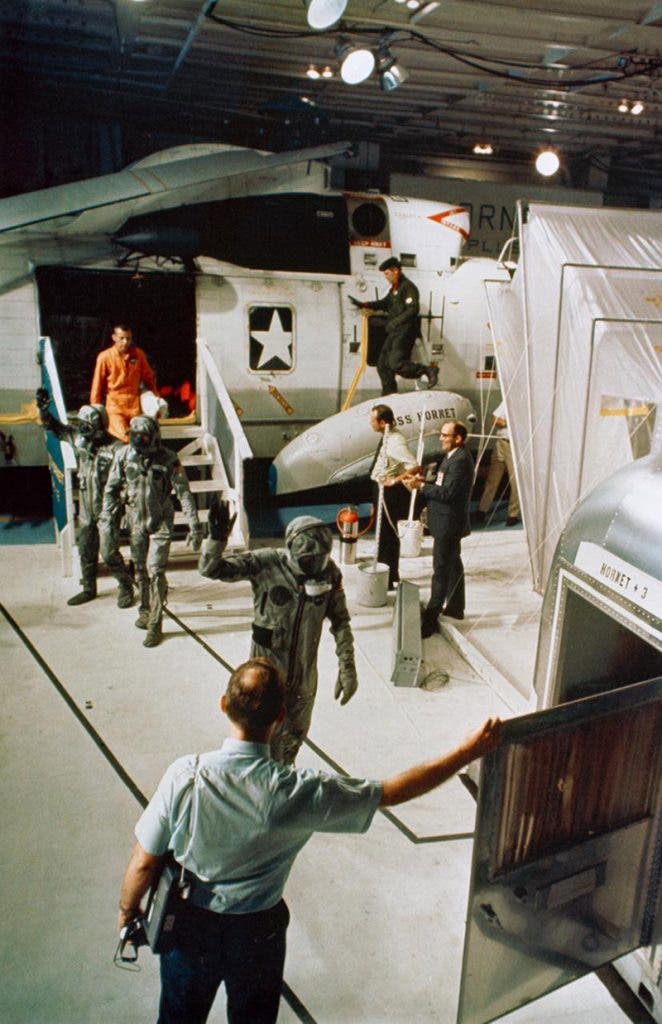
![“Aurora Borealis,” hand-colored wood engraving by Josiah Wood Whymper, [Natural Phenomena], plate 2, 1846 (Linda Hall Library)](https://assets-us-01.kc-usercontent.com:443/9dd25524-761a-000d-d79f-86a5086d4774/0245ffcb-b70c-477c-8792-0a73ebd54eb2/Whymper%2011.jpg?w=210&h=210&auto=format&fit=crop)
